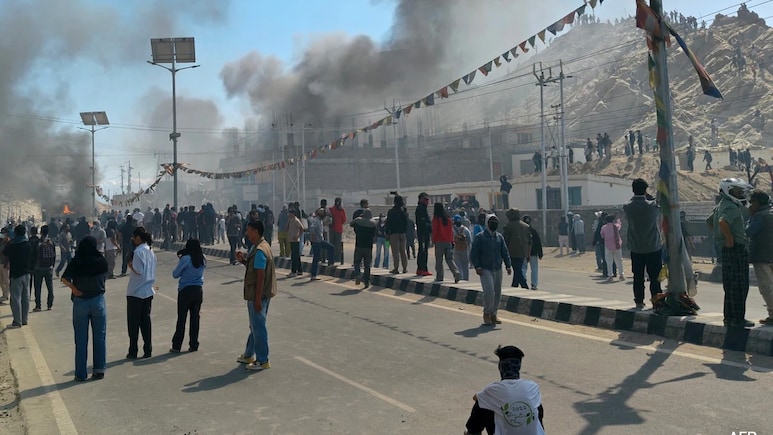
The central government today ordered a judicial probe into the killing of four protesters in police firing in Ladakh last month. A retired Supreme Court judge has been appointed to probe the circumstances that led to the police firing and killing of four people, including a Kargil war veteran.
Judicial probe by a top court judge was one of the key demands of Ladakhi groups demanding statehood and special constitutional protections for the region.
In a statement issued by the Ministry of Home Affairs (MHA), the government said that retired Supreme Court judge, Justice BS Chauhan, has been appointed to inquire into the September 24 incident in Leh.
"On 24.09.2025, a serious law and order situation was created in Leh town, resulting in police action leading to the unfortunate death of four individuals. To ensure an impartial inquiry, the Ministry of Home Affairs, Government of India, today, notified a Judicial Inquiry to be conducted by Dr Justice BS Chauhan into the circumstances leading to the serious law and order situation, the police action and the resultant unfortunate death of the four individuals," said MHA in a statement.
The Home Ministry has reiterated that the Government has always been open to dialogue. "We will continue to welcome discussion with Apex Body Leh (ABL) and Kargil Democratic Alliance (KDA) through the High Powered Committee on Ladakh or any such platform. We are confident that continuous dialogue will yield the desired results in the near future. The Government stands committed to the aspiration of the people of Ladakh," the statement added.
After violence in Leh, the MHA had squarely blamed activist Sonam Wangchuk for "instigating the mob through his provocative speech". Wangchuk was on hunger strike for 15 days, demanding statehood and constitutional safeguards for Ladakh. Soon after violence erupted in Leh, Wangchuk called off the hunger strike. He was eventually detained under the National Security Act and is currently lodged in Jodhpur jail.
Over the last four years, Ladakh has seen growing unrest against direct central rule. Residents have repeatedly called for statehood and constitutional safeguards to protect their land, culture, and resources.
Ladakh was carved out as a separate Union Territory in August 2019, following the abrogation of Article 370 and the bifurcation of the former state of Jammu and Kashmir. Many in Leh, including Wangchuk, had welcomed the move. But within a year, concerns began to mount over what residents described as a political vacuum under the administration of the Lieutenant Governor.
This discontent gave rise to large-scale protests and hunger strikes. For the first time, political and religious groups from Buddhist-majority Leh and Muslim-majority Kargil joined hands under a joint platform: the Apex Body of Leh and the Kargil Democratic Alliance.
In response, the Centre set up a high-level committee to examine Ladakh's demands. However, successive rounds of talks yielded no breakthrough. In March this year, Ladakhi representatives met Union Home Minister Amit Shah in Delhi.
Talks, however, collapsed as Ladakhi leaders said the Home Minister had rejected their core demands.
Track Latest News Live on NDTV.com and get news updates from India and around the world

